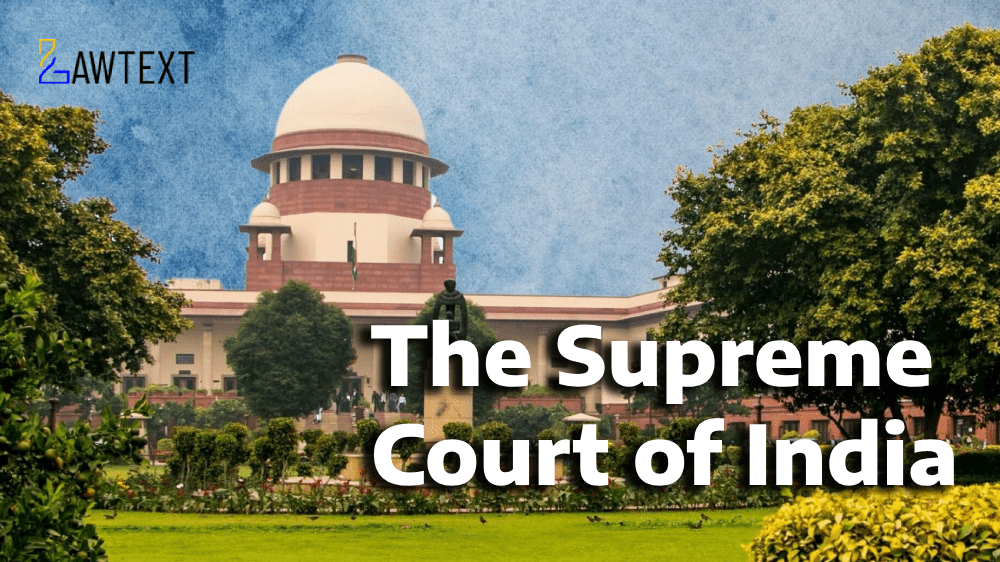"Supreme Court Restores Criminal Proceedings in Decades-Old NDPS Evidence Forgery Case" "Ensuring justice amidst allegations of tampering with judicial processes."

CASE NOTE & SUMMARY
The Supreme Court of India restored criminal proceedings against accused persons in a case involving evidence tampering in an NDPS matter from 1990. It overturned a Kerala High Court decision quashing these proceedings, emphasizing that judicial integrity cannot be compromised and directing the trial to be expedited within one year.
1. Case Background
- Origin: The case stems from a 1990 NDPS incident involving an Australian national, Andrew Salvatore, caught with charas at Thiruvananthapuram Airport.
- Seized Item: An item of evidence, the accused’s underwear (Mo2), was allegedly tampered with during the judicial process, casting doubt on its authenticity.
2. High Court's Judgment (2023)
- The Kerala High Court quashed the proceedings in Crime No. 215/1994, citing Section 195(1)(b) CrPC, which bars prosecution without a court complaint.
- It directed administrative steps under Section 195 but quashed the criminal case entirely.
3. Supreme Court Appeal (2024)
- SLP Filed by M.R. Ajayan: A journalist contested the High Court's decision, highlighting the importance of judicial scrutiny in evidence tampering cases.
- SLP Filed by Antony Raju: An accused in the case appealed against the High Court's directive for de novo proceedings.
4. Supreme Court's Findings
- On Locus Standi: The journalist had the right to approach the court, as tampering with judicial evidence undermines justice.
- On Bar Under Section 195 CrPC: The bar does not apply here because the proceedings originated from judicial directives, ensuring the case's legitimacy.
- On De Novo Proceedings: The Supreme Court upheld the need for retrial given the gravity of the allegations.
5. Court Directions
- The Supreme Court reinstated the proceedings, emphasizing that judicial integrity is paramount.
- Directed the trial to conclude within one year and set a deadline for the accused to appear in court.
Acts and Sections Discussed
- Narcotics Drugs and Psychotropic Substances Act, 1985: Section 20(b)(ii) concerning possession of narcotics.
- Indian Penal Code (IPC): Sections 120B (criminal conspiracy), 193 (false evidence), 201 (causing disappearance of evidence), 217 (disobedience by a public servant), and 420 (cheating).
- Code of Criminal Procedure (CrPC): Section 195(1)(b), which bars certain prosecutions unless initiated by a court complaint.
Legal Ratio:
- Judicial Supervision of Evidence Tampering: The judiciary must protect its processes from manipulation, as such acts erode trust in justice.
- Scope of Section 195 CrPC: This provision does not preclude action initiated under judicial directives, even if evidence tampering occurred.
- Fair Trial Principles: Exceptional circumstances, such as significant procedural violations, justify retrial to avert miscarriage of justice.
Subjects:
Criminal Law, Evidence Tampering, Judicial Integrity
#NDPSAct #EvidenceTampering #JudicialProcess #Retrial
ISSUE OF CONSIDERATION
M.R. AJAYAN VERSUS STATE OF KERALA & ORS.
Citation: 2024 LawText (SC) (11) 201
Case Number: CRIMINAL APPEAL NO. OF 2024 (Arising out of SLP(Crl.)No.4887 of 2024) CRIMINAL APPEAL NO. OF 2024 (Arising out of SLP(Crl.)No.7896 of 2023)
Date of Decision: 2024-11-20
Case Title: M.R. AJAYAN VERSUS STATE OF KERALA & ORS.
Before Judge: (C.T. RAVIKUMAR J. , SANJAY KAROL J.)
Appellant: M.R. AJAYAN
Respondent: STATE OF KERALA & ORS.

